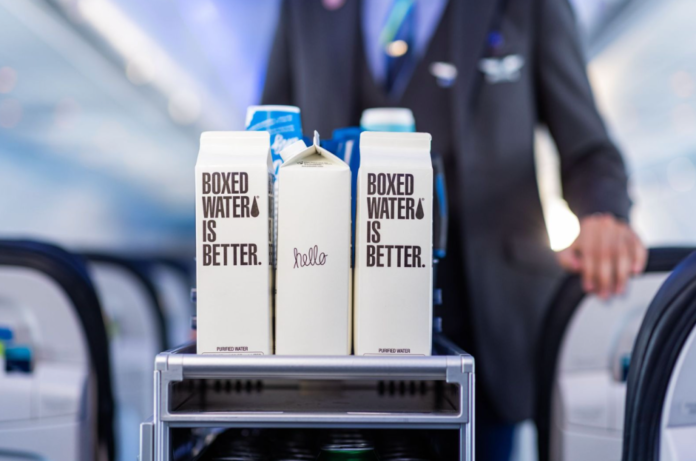In 2009, as plastic water bottles dominated retail shelves, Boxed Water launched with the goal of creating a new category — one where the least amount of plastic was combined with the most renewable materials. But a recent high-profile TikTok video says it’s greenwashing. Is it?
“This is greenwashing,” Sarah Paiji Yoo, the founder of the eco cleaning products company Blueland, said in a TikTok video she posted last year. Yoo is holding up a carton of water from the popular water brand Boxed Water — the single-use plastic bottle alternative is made mostly of paper. But in the video, Yoo argues that single-use plastic bottles are better than Boxed Water.
“While these cartons look like paper, they’re actually a paper/plastic/aluminum blend and made of 25 percent plastic,” Yoo says. And because these are a blend, it’s actually near impossible to separate these back out into their original materials [for recycling].”
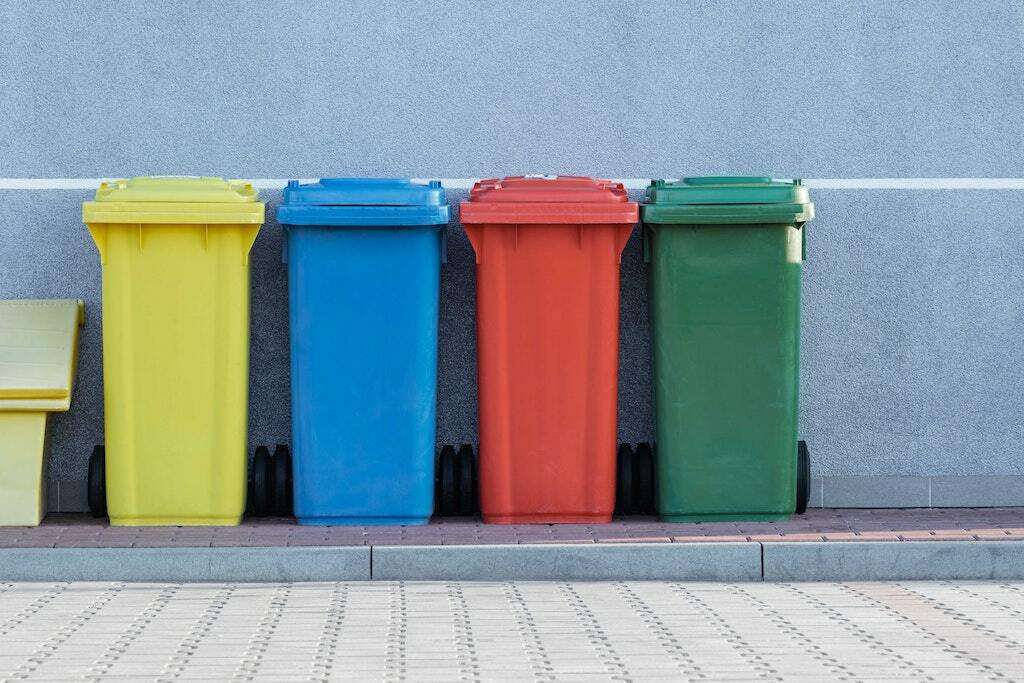
According to Yoo, 40 percent of the country does not offer recycling for the blended material she claimed are used in Boxed Water cartons. And she’s not entirely wrong there; municipal recycling capabilities can vary widely from city to city making recycling a difficult task for conscious consumers.
But data from the Environmental Protection Agency says there’s an even bigger problem: most recyclable consumer products aren’t recycled at all — even if easy options exist. Its most recent data showed only an 8.7 percent recycling rate in the U.S. Plastic recycling is particularly problematic even as more cities offer plastic recycling options than ever before.
The EPA says plastic and aluminum recycling rates are on the decline while carton recycling, such as that used in the Boxed Water packaging, is on the uptick. Carton recycling options are more widely available through municipal recycling facilities than for other materials. If, as Yoo said, a plastic bottle is a “better” option for recycling, the reality is that consumers just aren’t recycling those at effective enough rates.
Plasticwashing
Despite good intentions, Yoo got her facts really, really wrong, Boxed Water says. And despite the discrepancies, Yoo’s video was recently shared by the climate media site, The Cool Down, which didn’t fact-check her claims. ( I am a former contributor to The Cool Down.) Instead, the site positioned the article as a caveat emptor for conscious consumers who may be purchasing Boxed Water as a sustainable choice over plastic.
Boxed Water says that its products are far more sustainable than plastic; something fact-checking Yoo’s claims would have revealed. Boxed Water says verified, independent, ISO-certified Life Cycle Analyses have shown that its carton is the most renewable packaged water brand on the market. Robert Koenen, CRO for Boxed Water told Ethos via email that the cartons are 92 percent plant-based, which includes a plant-based resealable cap made from sustainably harvested tree pulp. That stands in contrast to Yoo’s claim the cartons are “25 percent plastic.”
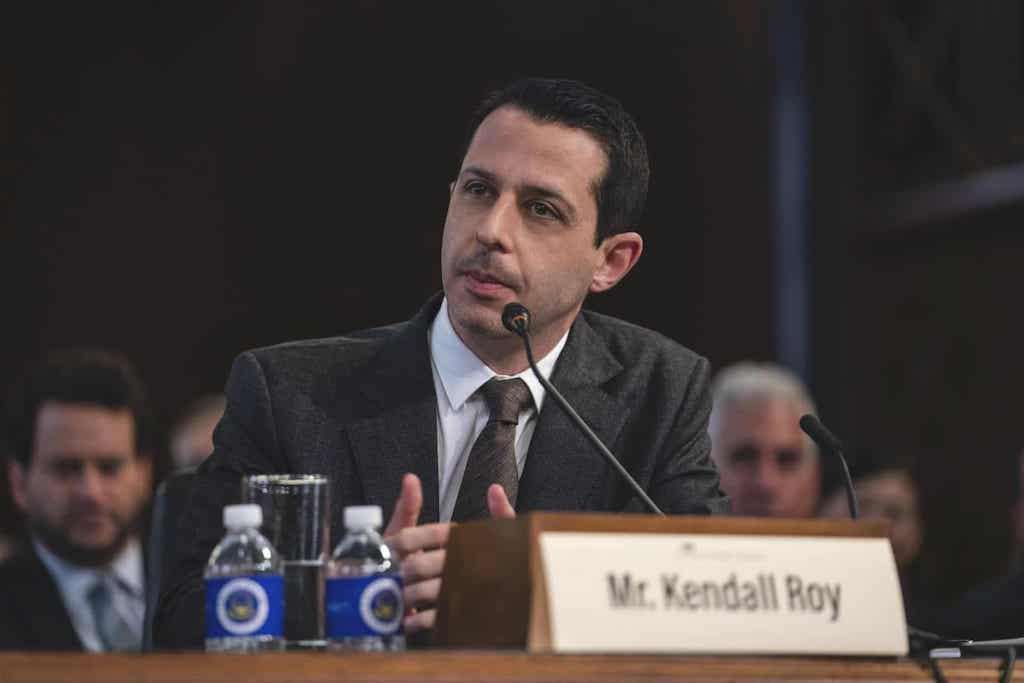
“If we are going to put ‘Boxed Water is Better’ on the side of our carton, we want to mean it,” Koenen says. “We hired an independent environmental research company, Anthesis Group, to assess the full life cycle of our carton compared to a similar size plastic water brand and an aluminum water brand. Their analysis was ISO-certified, and we are in the process of participating in an independent peer review of those findings.”
In assessing plastic bottles vs. Boxed Water cartons, Anthesis found that Boxed Water has a 36 percent lower carbon footprint, uses 43 percent fewer fossil fuels, and has a 95 percent lower impact on the ozone than plastic bottles. Compared to aluminum, the Anthesis study found Boxed Water has a 20 percent lower impact on ozone depletion. It’s also 50 percent lower on smog emissions and has a 66 percent lower impact on acidification due to deforestation.
Boxed Water does use plastic, but it says its plastic is made from plant-based materials. A number of plant inputs such as corn, algae, or sugarcane are used in biobased plastics, which have a number of benefits, namely the absence of fossil fuels. But like anything, it’s complicated.
While these types of plastic can biodegrade, they aren’t a wholesale solution to the global plastic problem, either. One of the biggest concerns about bioplastics is that the term itself isn’t regulated. Bio-based plastics can also contain up to 80 percent petroleum-based plastic, further confounding the issue. Some of the bio-based plastics that are billed as being biodegradable or compostable need specific inputs in order for them to properly break down — meaning, if they wind up in landfills, they may sit there for a good while just like conventional plastic. And, to Yoo’s point, some municipal recycling facilities may not be able to recycle that type of plastic.
The problems with plastic
Plastic’s problems for the planet can’t be overstated; more than eight million metric tons of plastic flow into the oceans annually, and by 2050, some experts suggest that there will be more plastic than fish in our seas. Recycling rates are dropping while single-use plastic consumption is increasing. “It’s not a good trajectory,” Koenen says.
Plastic is a leading contributor to climate change, responsible for nearly 3.5 percent of total global emissions — that’s more than the emissions from the entire aviation industry. As a fossil fuel byproduct, plastic is part of the petroleum extraction process, which can generate air and water pollution, and harm local communities.

Plastic presents another problem, one that may prove to be far more damaging long-term, and one we can’t recycle our way out of: the health risks of microplastics. Recent research has found microplastics in human blood and breast milk; they’ve been discovered in the deepest parts of the oceans and in isolated regions of the Arctic. Microplastics are polluting every level of the food chain. New research says humans inhale about a credit card’s worth of microplastic every single week.
Plastic exposure and build-up in the body may spur the onset of metabolic and reproductive issues as well as increase the risks of some cancers, among other health concerns. Not enough data exist yet to know the full risk of plastic exposure but most scientific bodies agree that plastic accumulation in the body is not a good thing.
Despite the inherent risks associated with plastic, the plastic industry isn’t looking for an exit strategy. Instead, it’s doubling down. According to one recent study, approximately 137 million tonnes of single-use plastics were produced from fossil fuels in 2021, and that number is expected to rise by another 17 million tonnes by 2027.
Much of that demand is being driven by China despite the country’s effort to curb its use, reports Reuters. “Despite high-profile bans on some single-use products starting in 2019, it also accounted for half of the 15 million tonnes of new capacity that came online over 2019-2021.”
According to the Organisation for Economic Co-operation and Development (OECD), global plastic waste produced is set to almost triple by 2060. The world is already producing twice as much plastic waste as two decades ago, the OECD says, with the bulk of it ending up in landfills, being incinerated, or leaking into the environment.
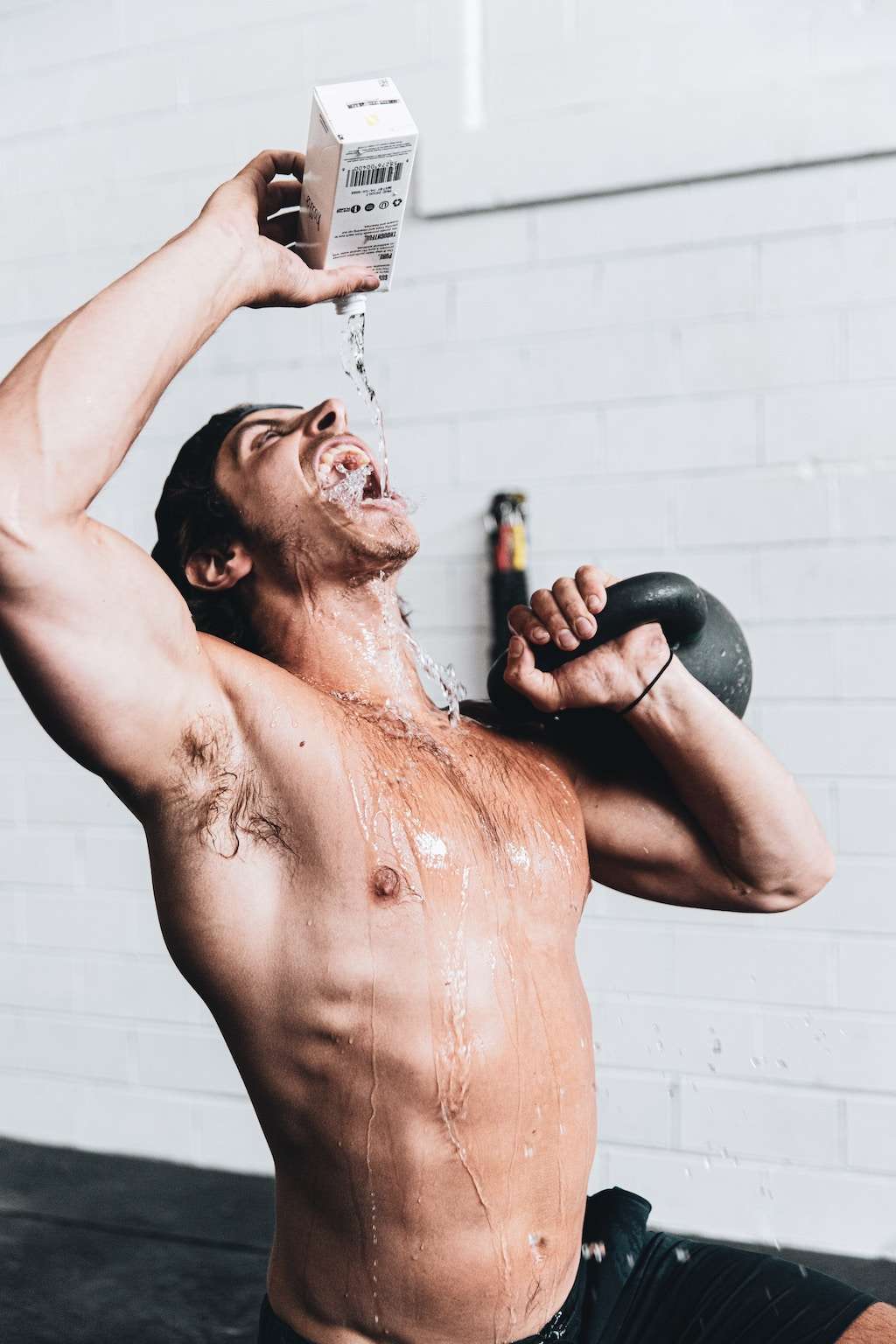
The plastic industry has also reportedly tapped a notoriously controversial consultant, Richard Berman, to help prop up plastic and attack its critics. Mother Jones says Berman, who has earned the nickname “Dr. Evil,” is well known in political circles for “funneling anonymous corporate money into vicious ad campaigns attacking various advocacy groups.”
Berman has been accused of starting or supporting a number of media companies under his nonprofit Center for Organizational Research and Education (CORE) to do that type of dirty work. CORE is aimed at targeting a number of groups, including Natural Resources Defense Council, Humane Society, Mothers Against Drunk Driving, and even the Centers for Disease Control and Prevention.
One of his media groups, the Center for Accountability in Science, has gone after Boxed Water with several articles that tout false data and accuse the brand of greenwashing, the company says.
“They are gaslighting and confusing readers to the ultimate benefit of the plastic industry and the detriment of climate change action,” Koenen says. Citizens for Responsibility and Ethics in Washington (CREW) says the Center for Accountability in Science is just the latest Berman project to “defend his interests.”
The future is reusable
There is one place where Boxed Water and Yoo agree, though — reusable water bottles are the most sustainable option and a long-term solution to the single-use epidemic. “Carry a reusable water bottle when you can,” Yoo said in her video.
“Most drinking water shouldn’t be packaged,” Koenen says. “Those who have access to clean municipal water should always prioritize refill. Yet, the truth of the matter is that Americans consume 50 billion plastic water bottles per year — and only recycle about one-fifth of that.”
It’s nowhere near the default yet, but consumers are moving toward reusables. The global reusable water bottle market size is on the upswing; it’s estimated to grow at a CAGR of 4.25 percent — nearly $2 billion — between 2022 and 2027, according to recent data from Technavio.
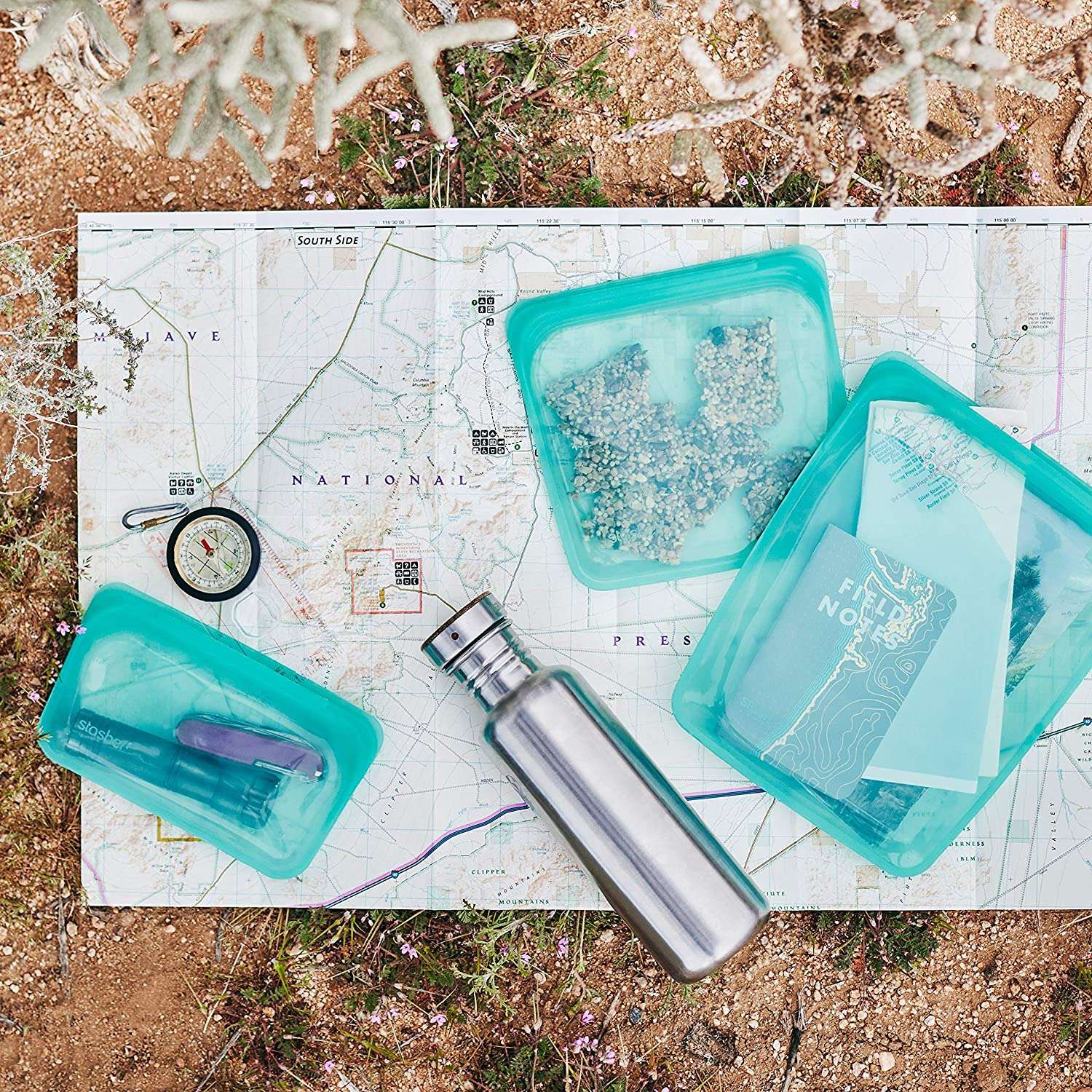
Boxed Water underscores that only trees are “truly renewable”; both plastic and aluminum cannot be put back into the earth once extracted.
But Boxed Water is doing as much as it can to help wean consumers off of their plastic addiction. The company is now CarbonNeutral certified and has redesigned its packaging extensively over the last 14 years in order to continue to become the most sustainable version of itself. And its impact has led to a groundswell of innovation in the category; Liquid Death’s canned water has seen tremendous growth since its launch in 2017.
So has Jason Momoa’s Mananalu water brand, which launched in 2019. Like Liquid Death, it relies on aluminum for its bottles. Both Boxed Water and Mananalu have airline partnerships, too. Mananalu recently launched with Hawaiian, while Boxed Water launched with Alaska Airlines in 2021.
These efforts make a difference; Boxed Water says through its Alaska Airlines partnership, it’s eliminating 1.8 million pounds of single-use plastics per year. Just last week, Los Angeles’s LAX and Van Nuys airports announced a ban on single-use plastic water bottles. LAX was seeing 88 million travelers per year pre-pandemic — about 250,000 travelers per day.
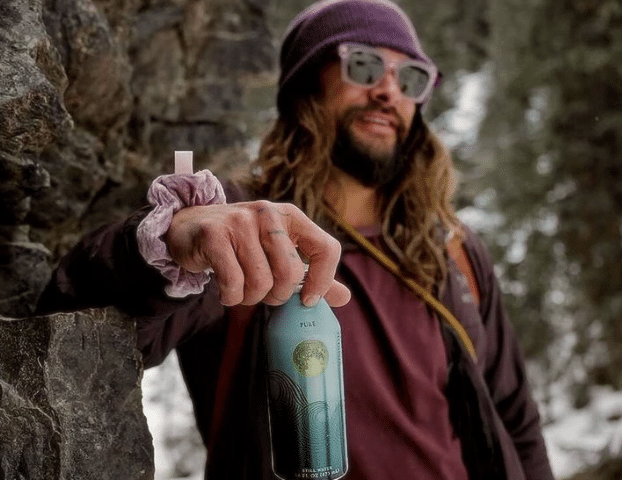
“Eliminating single-use plastic water bottles is the right thing to do for our airports, our communities, and our environment,” Justin Erbacci, Chief Executive Officer of Los Angeles World Airports, said in a statement.
Boxed Water says that if everyone switched to reusable bottles and carton water, we’d save enough energy to power New York City for an entire month.
But the reality is we’re just not there yet; single-use products aren’t going away anytime soon. But Boxed Water says it’s important to not let perfect be the enemy of progress.
“It’s the ‘perfection over the planet’ mentality that can actually be the biggest detriment to moving the needle on plastic waste,” Koenen says, especially with 38 billion single-use plastic bottles going into our landfills each year. That’s the equivalent of a garbage truck of plastic being dumped into our oceans every minute.
“Refill is best,” Koenen says, “and hopefully (someday) a majority of consumers will fully adopt and embrace the refill mindset. In the meantime, we’ve got to stop loss in every way we can.”
Ethos reached out to Blueland, Liquid Death, and Mananalu for inclusion in this story but had not received a reply by publish time.
Related on Ethos:

